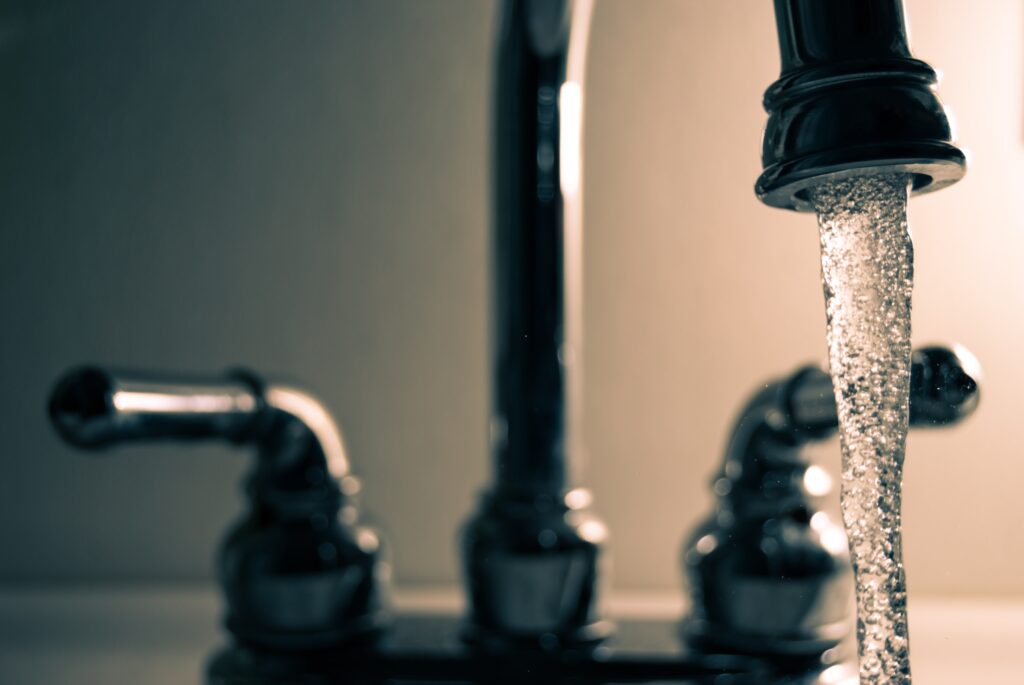Is the water supply in your home hard water? It’s no surprise! According to WebMD, around 85% of homes in the country deal with hard water. Hard water is typical but with higher amounts of minerals like calcium, magnesium, copper, and iron. Not only does hard water leave stains on your fabric, porcelain sink, kitchenware, or a film on your skin on touch, hard water and septic systems do not mix.
The naturally-occurring minerals in hard water can adversely affect your drain pipes and home appliances.
You are lucky if you’re looking to understand the relationship between hard water and your septic system.
This is a complete guide on how hard water affects your septic system and offers the best solutions to minimize the damage.
How to test for hard water?
Testing for hard water can be pretty straightforward, and you can do right in your kitchen.
Get a clear empty bottle and liquid soap to do the hard water test.
Fill your bottle to a third of its volume and add a few drops of your liquid soap.
Shake the contents vigorously and let it settle.
The soap will not lather with hard water, and you won’t see any soap bubbles.
And with soft water, on the other hand, the soap will lather to form sud, creating bubbles on top and clear water at the bottom.
Another option is to buy the hard water testing kit from the store and test your water. The testing kits include a strip with a color chart that indicates the softness or hardness of the water.
Lastly, you can consider a lab test for a more accurate water analysis.
Understanding the hardness level of your water supply can help you find the perfect solution to soften the water.
Why Worry About Hard Water and Septic Systems?
The naturally-occurring minerals in hard water can have a detrimental impact on your drain pipes.
The hard water travels through your plumbing system, and it deposits minerals like magnesium and calcium on the pipe walls.
This results in a limescale build-up in the pipes, leading to expensive plumbing problems.
For instance, the scale builds up with time and ultimately clogs the pipes making it hard for water and waste to pass through.
Ultimately, you might have to deal with a low water supply and huge water bills because of plumbing malfunctions due to hard water.

Effects of hard water on a plumbing system
- Hard water can stain your surfaces.
A hard water supply can be unforgiving to your precious bathroom tiles, porcelain bathtub, and sinks, and it creates an eyesore scale that can be pretty unsightly and leaves tough stains that can’t go.
- Hard water can clog your drain pipes.
Hard water in your pipes creates a build-up of lime scales which combines with other debris in the sewer system like soap to form clogs.
Clogged pipes can cause many plumbing problems like leakages due to build-up pressure and sewer backup.
In addition to slowing the drains, clogged pipes can also damage your garbage disposals.
- Hard water can clog showerheads and affect the appliance’s efficiency.
Apart from leaving stains on surfaces, hard water can cause blockages in your showerheads, faucets, and dishwasher arms.
Furthermore, it can reduce the efficiency of water-using appliances like dishwashers, refrigerators, washing machines, and water heaters.
The scale build-up in the appliances forces them to work twice as much, which leads to fast wear and tear.
And with time, the scum can build up around the nozzles hence cutting the water supply.
How to protect your septic system from hard water damage?
Water softening is one of the solutions to protect your septic system from hard water damage.
Typically, a water softener eliminates the excess minerals in your water supply, protecting your plumbing system.
Contact your licensed plumbing technician to fix the clogs in your septic system. Let Casa Grande Septic Service help you today!
